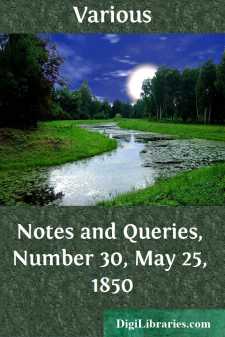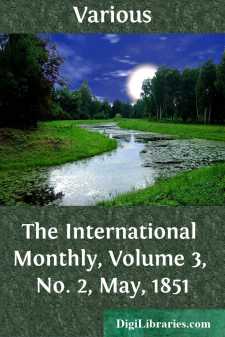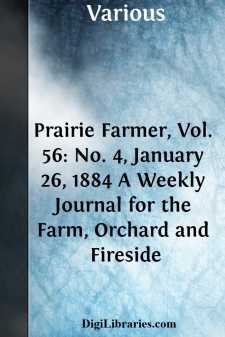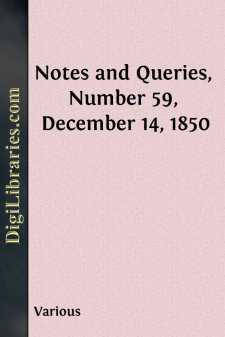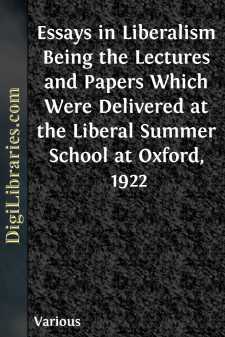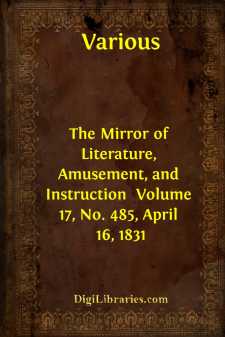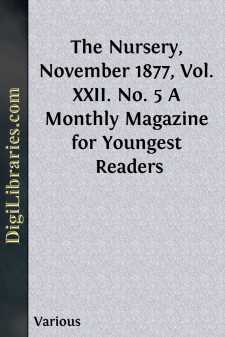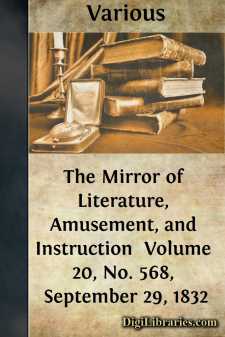Categories
- Antiques & Collectibles 13
- Architecture 36
- Art 48
- Bibles 22
- Biography & Autobiography 815
- Body, Mind & Spirit 144
- Business & Economics 28
- Children's Books 18
- Children's Fiction 14
- Computers 4
- Cooking 94
- Crafts & Hobbies 4
- Drama 346
- Education 58
- Family & Relationships 59
- Fiction 11833
- Games 19
- Gardening 17
- Health & Fitness 34
- History 1378
- House & Home 1
- Humor 147
- Juvenile Fiction 1873
- Juvenile Nonfiction 202
- Language Arts & Disciplines 89
- Law 16
- Literary Collections 686
- Literary Criticism 179
- Mathematics 13
- Medical 41
- Music 40
- Nature 179
- Non-Classifiable 1768
- Performing Arts 7
- Periodicals 1453
- Philosophy 65
- Photography 2
- Poetry 896
- Political Science 203
- Psychology 44
- Reference 154
- Religion 515
- Science 126
- Self-Help 85
- Social Science 82
- Sports & Recreation 34
- Study Aids 3
- Technology & Engineering 59
- Transportation 23
- Travel 463
- True Crime 29
Sort by:
by:
Various
NOTES DR. JOHNSON AND DR. WARTON. Amongst the poems of the Rev. Thos. Warton, vicar of Basingstoke, who is best remembered as the father of two celebrated sons, is one entitled The Universal Love of Pleasure, commencing— "All human race, from China to Peru, Pleasure, howe'er disguised by art, pursue." &c. &c. Warton died in 1745, and his Poems were published in 1748....
more...
by:
Various
GEORGE WILKINS KENDALL. We have here a capital portrait of the editor in chief of the New Orleans Picayune, George W. Kendall, who, as an editor, author, traveller, or bon garçon, is world-famous, and every where entitled to be chairman in assemblies of these several necessary classes of people. Take him for all in all, he may be described as a new Chevalier Bayard, baptized in the spirit of fun, and...
more...
by:
Various
There are two causes of failure to make this crop uncertain. One is because the soil is not kept clear of weeds, and the other is that it is not properly enriched. To raise a good crop of onions requires a light, loamy soil, worked into as fine a condition as possible, to render cultivation easy. The greater part of the preparation should be done in the fall, and especially the application of the...
more...
by:
Various
NOTES. THE FIRST PAPER-MILL IN ENGLAND. In the year 1588, a paper-mill was established at Dartford, in Kent, by John Spilman, "jeweller to the Queen." The particulars of this mill are recorded in a poem by Thomas Churchyard, published shortly after its foundation, under the following title:— "A description and playne discourse of paper, and the whole benefits that paper brings, with...
more...
by:
Various
THE LEAGUE OF NATIONS AND THE REHABILITATION OF EUROPE By the Rt. Hon. Lord Robert Cecil K.C., M.P., Assistant Secretary of State for Foreign Affairs, 1918. Minister of Blockade, 1916-1918. Representative of Union of South Africa at Assembly of League of Nations. Lord Robert Cecil said:—I ought to explain that I am here rather by accident. The speaker who was to have addressed you was my great...
more...
by:
Various
NOTES ETYMOLOGY OF PENNIEL. Some eighteen years ago, the writer of the following sonnets, by the kindness of the proprietors of a pleasant house upon the banks of the Teviot, enjoyed two happy autumns there. The Roman road which runs between the remains of the camp at Chew Green, in Northumberland, and the Eildon Hills (the Trimontium of General Roy), passed hard by. The road is yet distinctly visible...
more...
by:
Various
NOTES. FOLK LORE. The First Mole in Cornwall; a Morality from the Stowe of Morwenna, in the Rocky Land.—A lonely life for the dark and silent mole! She glides along her narrow vaults, unconscious of the glad and glorious scenes of earth, and air, and sea! She was born, as it were, in a grave, and in one long living sepulchre she dwells and dies! Is not existence to her a kind of doom? Wherefore is...
more...
by:
Various
MOCHA. “Bon pour la digestion,” said the young Princess Esterhazy, when sent to bed by her governess without her dinner; we say the same of coffee; and hope the reader will think the same of Mocha, or the place whence the finest quality is exported. Mocha, the coffee-drinker need not be told, is a place of some importance on the borders of the Red Sea, in that part of Arabia termed “Felix,” or...
more...
by:
Various
STEERING FOR HOME. LOW, thou bitter northern gale;Heave, thou rolling, foaming sea;Bend the mast and fill the sail,Let the gallant ship go free!Steady, lad! Be firm and steady!On the compass fix your eye;Ever watchful, ever ready,Let the rain and spray go by!We're steering for home. Let the waves with angry thudShake the ship from stem to stern;We can brave the flying scud,It may go, it may...
more...
by:
Various
BIRTHPLACE OF THE EARL OF ELDON. Little need be said, by way of explanation, for the addition of the present subject to our collection of the birthplaces of eminent men. It is something to know that John Scott was born at Newcastle-upon-Tyne, in the principal dwelling represented in the above Engraving, in the year 1751; that he received the rudiments of his education at the free grammar-school of the...
more...


